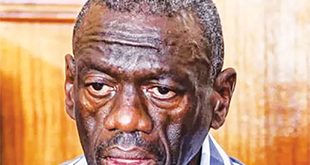
By Nicole Namubiru
Doctors explain why faulty results are more common than you think
Laura and Martin wanted to settle down together. They decided to do the necessary medical tests. That is when bad news struck; Laura was told she is HIV positive.
But then she did another test and was told she was HIV negative. So they decided to redo the other tests in different medical laboratories in Kampala and realised they sometimes got contradicting results. How is that?
Dr. Henry Ddungu, a laboratory scientist at Uganda Cancer Institute, says that is not unusual and recommends taking more than one test to verify critical diagnosis.
“It is very critical to take an initial screening test and follow it with a confirmative test to verify the initial one. This is what we do.”

Dr. Elijah Mugoya of Lancent Laboratories Uganda says sometimes the different results are due to the difference in the methodology employed to get them or human error. He says one may be really good at microbiology and is not as good at chemisty or others.
“So when tests are being carried out it is important to give people tasks according to their areas of expertise,” he says.
He also believes that hi-tech machinery should be used to analyse specimen as this removes mistakes attributed to human error where the technicians are sometimes working under pressure due to limited time to deliver the results or exhaustion.
Many laboratory technicians in Uganda work under time and money pressures as they have to analyse many specimens using poor equipment. This puts them at a high probability of not performing confirmative tests; which in turn increases the chances of giving faulty results.
But Dr. Twaha S. Mutyaba, a gynecologist, says laboratory medical tests should not be taken lightly as a wrong diagnosis is a big risk to both the patient and the doctor.
“It could even lead to trauma and suicidal attempts among certain people in extreme cases,” he says.
Dr Mugoya also cautions that since diagnosis is very essential to proper health care, doctors should never draw conclusions on people’s ailments basing their judgments on their symptoms. This is majorly because different health conditions may have the same symptoms.
Steven Aisu, the director and head of the Central Public Health Laboratories under Ministry of Health, says although faulty results are possible, they are on the decrease due to the system of international accreditation of laboratories that the Ministry is using.
“Laboratories will have to pass through a process of improvement so as to reach the 5-star international standards and then be accredited,” he says.
Accreditation is done by bodies like College of American Pathologists (CAP), South African National Accreditation System (SANAS) among others, and the World Health Organisation (WHO).
A study about Medical Laboratories in Sub-Saharan Africa Accredited to Internationally-Recognised Standards lists five accredited laboratories in Uganda. Two are private and three are public. That study was completed in 2012. A few others have been added to the list; including the WHO-accredited National Tuberculosis Reference Laboratory.
 The Independent Uganda: You get the Truth we Pay the Price
The Independent Uganda: You get the Truth we Pay the Price


